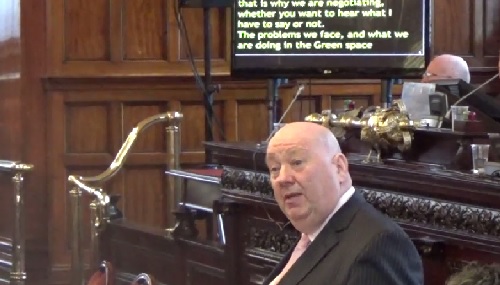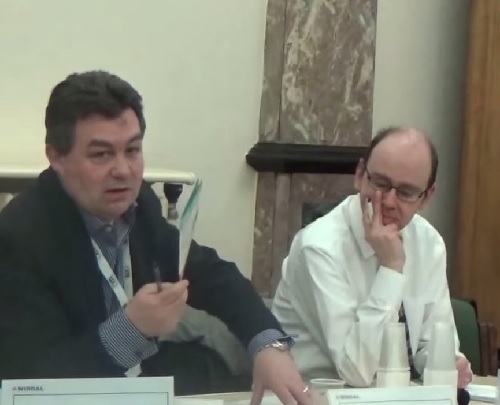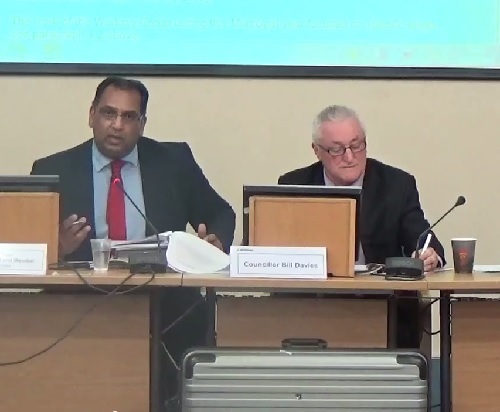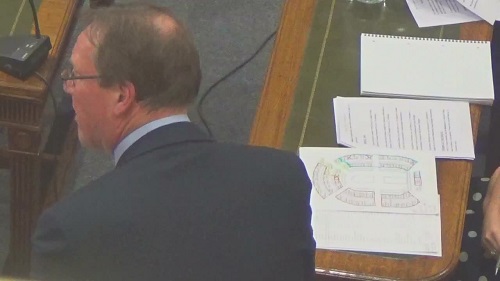Should all Liverpool City Council councillors have had a vote on a £110,000 “golden goodbye” for the former Director of Public Health?

For those with long memories going back to 2012, you will remember a number of Wirral Council’s chief officers were suspended, but left Wirral Council with large payouts. One example (of many) was Bill Norman (the former Monitoring Officer/Head of Law, HR and Asset Management) leaving at a cost of £151,416.
Those with even longer memories will remember that two senior managers in Wirral Council’s Social Services department left the employment of Wirral Council the day before the Anna Klonowski Associates report was published at a cost of £109,496.45 for the Head of Support Services (Finance Department) and Assistant Director, Head of Wellbeing (Department of Adult Social Services) at a cost of £111,042.95 .
There was a certain degree of public anger that in the case of these last two councillors were not directly involved in the decision. Outrage at the amount involved led to a change to Wirral Council’s constitution, so councillors did decide whether to agree to a compromise contract in Bill Norman’s case. This also led to changes at the national level.
The Rt Hon Eric Pickles MP wrote to all leaders of local councils in England in February 2013, you can read read his letter here which contained the following on what should happen with regards to large severance payments.
- Full Council should also be given the opportunity to vote on severance payments over £100,000. Many believe that pay-offs to senior local government staff are excessive and too frequent. The Localism Act brings out into the open the approach taken to severance across the sector. There is a clear case for going further and ensuring that, as well as approving their authority’s policy on severance, Members are able to consider each time it is proposed to spend local taxpayers’ money on a large pay-off.
This follows on from my announcement in November 2012 where I said that I intend to remove the costly and bureaucratic requirement for a designated independent person to investigate allegations of misconduct by senior officers from the Local Authorities (Standing Orders) (England) Regulations 2001. I am currently consulting with the Local Government Association and others on the draft regulations to give effect to these changes.
Accompanying Eric Pickles’ letter was guidance, which section 40 of the Localism Act 2011 stated that “A relevant authority in England must, in performing its functions under section 38 or 39, have regard to any guidance issued or approved by the Secretary of State.” Sections 38 and 39 of the Localism Act 2011 relate to pay policy statements.
At Liverpool City Council’s Budget meeting of the 5th March 2014, the pay policy for 2014/15 was agreed. The bit about large severance payments is phrased in an interesting way:
In other words instead of following the guidance and giving all councillors a vote at Liverpool City Council on severance payments over £100,000 and the requirement in section 40 of the Localism Act 2011 to have regard to the guidance when drawing up their pay policy statement, Liverpool City Council decided just to do things differently.
Buried on page 82 of Liverpool City Council’s statement of accounts for 2014/15 it shows a payment of £110,000 was made for “compensation for loss of employment” to Liverpool City Council’s Director of Public Health who left on the 6th April 2014.
So did the Appointments Panel at Liverpool City Council decide on this? The meeting of the Appointments Panel of Monday 24th February 2014 (the one directly before to the Director of Public Health leaving in April 2014) curiously has no agenda and no minutes published on Liverpool City Council’s website.
The supplementary guidance issued in 2013 had this to state on the subject of large severance payments.
11. There has been a great deal of public scrutiny of the level of severance payments awarded to senior local government staff and rightly so. Authorities should ensure that they manage their workforces in a way that best delivers best value for money for local taxpayers and sets the right example on restraint. This includes any payments offered to staff leaving the authority.
12. Authorities are already required to publish their policies on severance for chief officers 5 and their policy on discretionary compensation for relevant staff in the event of redundancy. 6 In addition, other regulations provide for disclosure of remuneration of senior employees including details of severance payments within authorities’ annual statement of accounts. 7
13. Taken together, these measures enable greater scrutiny of the money spent by authorities on severance. However, given continuing public concern about the level and frequency of such payments, there is a case for going further to ensure that decisions to spend local taxpayers’ money on large pay-offs are subject to appropriate levels of accountability. Authorities should, therefore, offer full council (or a meeting of members in the case of fire authorities) the opportunity to vote before large severance packages beyond a particular threshold are approved for staff leaving the organisation. As with salaries on appointment, the Secretary of State considers that £100,000 is the right level for that threshold to be set.
14. In presenting information to full council, authorities should set out clearly the components of relevant severance packages. These components may include salary paid in lieu, redundancy compensation, pension entitlements, holiday pay and any bonuses, fees or allowances paid.
15. This follows on from the Secretary of State’s announcement 8 that he intends to remove the costly and bureaucratic requirement for a designated independent person to investigate allegations of misconduct by senior officers from the Local Authorities (Standing Orders) (England) Regulations 2001. We are currently consulting with the Local Government Association and others on the draft regulations to give effect to these changes.
So according to the guidance, should all of Liverpool City Council councillors had a vote on the £110,000 payment to the former Director of Public Health along with a published breakdown as to how this £110,000 figure was arrived at?
Why is the agenda (and minutes if it met) of the public meeting of Liverpool City Council’s Appointments Panel immediately prior the Director of Public Health not available?
Why state in the pay policy about “respect of the entitlement to privacy of the individual concerned” when there is legislation requiring such payments to senior officers to be included in the statement of accounts anyway (see Regulation 7(3)(iv) of the Accounts and Audit (England) Regulations 2011)?
Doesn’t this all seem to show that when the Coalition government tried to improve transparency and accountability in this area that Liverpool City Council just blatantly decide to carry on what it was doing before regardless of what the new guidance stated?
Does anyone know if following consultation with the Local Government Association and others whether regulations about this area came into force (if so what are they called) or was guidance considered sufficient?
If you click on any of the buttons below, you’ll be doing me a favour by sharing this article with other people.



